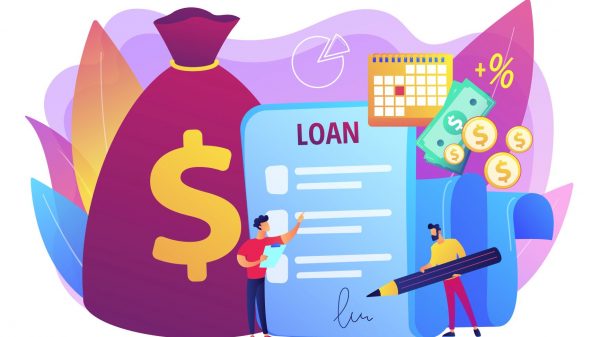Real estate investing is a proven path to wealth, but many believe it requires substantial capital. You can begin investing in real estate with limited funds by using smart strategies and leveraging available resources.
Here’s a step-by-step guide to help you start your real estate investment journey, even if you have little money.
Step 1: Educate Yourself

Understanding the basics of real estate investing is crucial. This includes learning about different types of properties (residential, commercial, etc.), the real estate market, and investment strategies.
- Read Books: To grasp the mindset needed for investing, start with foundational books like “Rich Dad, Poor Dad” by Robert Kiyosaki. Other recommended readings include “The Millionaire Real Estate Investor” by Gary Keller and “The Book on Rental Property Investing” by Brandon Turner.
- Attend Seminars and Webinars: Many organisations and real estate groups offer free or low-cost seminars. These events can provide you with valuable knowledge and networking opportunities.
- Join Real Estate Investment Groups: Networking with experienced investors can provide invaluable insights. Consider joining local real estate investment clubs or online forums where you can ask questions and learn from others’ experiences.
- Online Courses: Platforms like Coursera, Udemy, and others offer courses on real estate investing. These courses can cover various topics, from basic principles to advanced strategies.
Step 2: Establish Your Financial Foundation
Before investing, ensure you have a solid financial base. This includes paying down high-interest debt and having an emergency fund.
- Create a Budget: Track your income and expenses to find areas for savings. Use budgeting tools or apps to help you stay on track.
- Build an Emergency Fund: Aim to save at least three to six months’ worth of living expenses. This fund will serve as a safety net in case of unexpected expenses.
- Pay Down Debt: Focus on reducing high-interest debt, which can free up more money for investing. Consider using strategies like the debt snowball or debt avalanche methods to pay off your debts more efficiently.
Step 3: Explore Financing Options in the UK
Since you have limited funds, it is key to explore various financing options. These could include traditional mortgages as well as more creative options.
- Help to Buy Scheme: This government initiative helps first-time buyers and existing homeowners purchase a new-build home with as little as a 5% deposit. The government provides an equity loan of up to 20% (40% in London) of the property value, which is interest-free for the first five years.
- Shared Ownership: This scheme allows you to buy a share of a property (usually between 25% and 75%) and pay rent on the remaining share. Over time, you can purchase additional shares (a process known as “staircasing”) until you own the property outright.
- Lifetime ISA (LISA): A LISA is a savings account for individuals aged 18-39. You can save up to £4,000 per year, and the government will add a 25% bonus (up to £1,000 per year). The funds can be used to buy your first home or for retirement.
- Guarantor Mortgages: If you have a low deposit or poor credit history, a guarantor mortgage allows a family member or friend to guarantee the mortgage repayments. This can make it easier to secure a mortgage with more favourable terms.
- Bank of Mum and Dad: Many first-time buyers receive financial help from their parents, either as a gift or a loan. Some parents may also act as guarantors to help secure a mortgage.
- Local Government Programs: Some local councils offer schemes to help first-time buyers with deposits or provide affordable housing options. Research programs available in your area for additional support.
Exploring these options can help you find the best way to finance your first property, even with limited funds.
Step 4: Consider Real Estate Investment Trusts (REITs)

REITs allow you to invest in real estate without having to buy property. They are companies that own, operate, or finance income-producing real estate.
- Research REITs: Look for REITs that fit your investment goals and risk tolerance. There are different types of REITs, including equity REITs, which own and operate properties, and mortgage REITs, which invest in real estate debt.
- Invest Through Brokerages: Many brokerages allow you to buy REITs like stocks, making it easy to start with a small amount of money. REITs can provide regular income through dividends and the potential for capital appreciation.
Step 5: Partner with Other Investors
Partnering with others can help you pool resources and share risks.
- Network: Join real estate investment groups or clubs to meet potential partners. Networking events and online forums can be great places to find like-minded individuals interested in co-investing.
- Create Partnerships: Look for opportunities where you can contribute skills or effort in exchange for financial investment from others. For example, you might manage a property while a partner provides the capital.
Step 6: House Hacking
House hacking involves buying a property, living in a part of it, and renting out the rest.
- Buy a Multi-Family Property: Look for duplexes, triplexes, or fourplexes where you can live in one unit and rent out the others. This strategy can help you cover your mortgage and build equity.
- Use Rental Income: The income from renting out the other units can help cover your mortgage and other expenses. House hacking can be an effective way to live for free or at a reduced cost while building your real estate portfolio.
Step 7: Leverage Seller Financing

Seller financing is when the seller acts as the lender, allowing you to make payments directly to them instead of getting a traditional mortgage.
- Negotiate Terms: Discuss seller financing options with property owners. This can be beneficial if you have trouble qualifying for a conventional loan. Be prepared to negotiate terms such as the interest rate, repayment schedule, and down payment.
- Understand the Agreement: Make sure you understand the terms and conditions of the seller financing agreement. Consult a real estate attorney to ensure the contract protects your interests.
Step 8: Utilise Private Money Lenders
Private money lenders are individuals who lend their own capital for real estate investments. They often have more flexible terms than traditional banks.
- Build Relationships: Attend networking events, real estate meetups, and seek referrals to connect with private lenders. Establishing trust and credibility with potential lenders is crucial.
- Present Your Plan: Present a solid investment plan to potential lenders, showcasing how their money will be used and repaid. Highlight your experience, the property’s potential, and the projected returns.
Step 9: Buy Foreclosed Properties
Foreclosed properties can often be purchased below market value, making them a good investment.
- Research Listings: Use online resources and real estate agents to find foreclosed properties. Websites like Zillow, Realtor.com, and Foreclosure.com can help you locate foreclosed homes.
- Be Prepared to Act Quickly: Foreclosed properties can move fast, so be ready to make offers promptly. Ensure you have financing in place and a clear understanding of the property’s condition before making a bid.
Step 10: Start Small and Scale Up

Begin with smaller investments and gradually scale up as you gain experience and build capital.
- Start with Single-Family Homes or Small Rentals: These are often more affordable and easier to manage. Single-family homes can be a great entry point into real estate investing.
- Reinvest Profits: Use the income and profits from your initial investments to fund larger properties or additional investments. As you gain experience, you can diversify your portfolio with different types of properties and investment strategies.
Bonus Tips for Successful Real Estate Investing
1. Develop a Clear Investment Strategy
Having a clear strategy helps you stay focused and make informed decisions. Determine your investment goals, whether it’s generating passive income, flipping properties for profit, or building long-term wealth.
2. Stay Informed About the Market
Real estate markets can fluctuate, so staying informed about market trends is essential. Follow real estate news, attend local market updates, and subscribe to industry newsletters to keep your knowledge current.
3. Build a Strong Network
Networking is crucial in real estate investing. Develop relationships with real estate agents, contractors, property managers, and other investors. A strong network can provide support, advice, and opportunities for collaboration.
4. Conduct Thorough Due Diligence
Always conduct thorough due diligence before making any investment. This includes inspecting the property, analysing the local market, and understanding the financials. Don’t rush into a deal without fully understanding its potential risks and rewards.
5. Be Patient and Persistent
Real estate investing is a long-term game. Be patient, and don’t expect immediate returns. Persistence and consistent effort will pay off over time as you build your portfolio and increase your wealth.
Summary
Starting with little money requires creativity, education, and strategic planning. However, you can begin your journey in real estate investing by leveraging financing options, partnerships, and lower-cost investment opportunities.
Remember, the journey to financial freedom through real estate is a marathon, not a sprint. Start small, stay informed, and gradually build your investment portfolio. Your financial future is within reach, even with limited funds.
By following these steps and staying committed to your investment goals, you can successfully navigate the world of real estate investing and work towards achieving financial independence. Whether you start with a small property, a partnership, or an investment in a REIT, the key is to take action and continuously learn and adapt. Real estate offers numerous opportunities for those willing to put in the effort and think creatively.























































